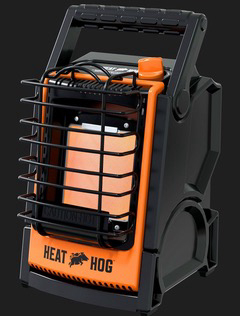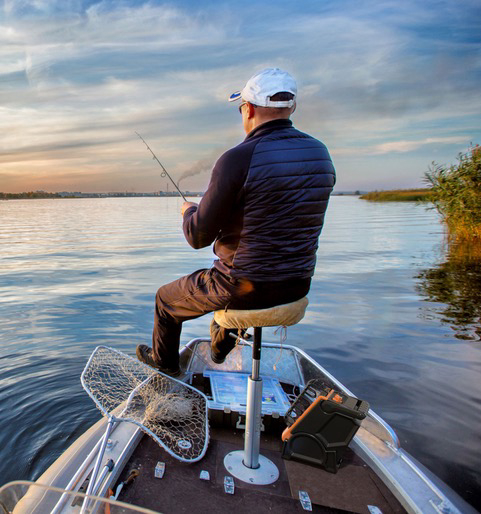The main reason I quit hunting deer in the January rut was I got cold feet.
Not in the sense of not wanting to pull the trigger, but as in actually getting feet that turned an odd shade of blue and then white when I sat in a tree on those 20-degree mornings when the big boys like to run in Alabama.
No matter how many layers of socks I put on, it was always the same—my feet froze and by 9 a.m. I was down out of the stand and headed for the campfire or the house. Needless to say, you don’t bring home many trophies that way.
It’s the same for winter crappie fishing and striped bass fishing. Both of these species love cold weather and are much easier to catch in winter than in summer. But again, if you have chronic cold feet, no crappie fries or striper fillets.
It turned out I have something called Raynaud’s Syndrome, which is basically a circulation problem old guys (and gals) frequently get. If I get cold, the blood quits going to my feet and hands and tries to keep my core warm. My feet literally turn white as a sheet of paper, and the MD’s tell me they will readily freeze without my knowing it in that condition.
So, this winter I’ve been in the market for an outdoors heater.
It turns out there are quite a few of them dedicated to outdoors activities.
 |
One company that makes several useful models is Heat Hog, which makes three sizes, including one small enough to stick in a backpack and hump out to a deer stand and a couple of larger models that are way more than you need for keeping toasty out in your pontoon boat.
The company says the heaters were developed by Minnesota ice fishermen, so you get an idea. Some of the lakes up there are ice covered until the end of April. And the folks up there actually like this—a lot.
I will note if you are one of those guys who likes to look at three pictures and then put a device into service, the Heat Hog manual may give you pause.
Like most products today, the manual is three-quarters written by attorneys to protect against lawsuits, and you have to plow through all the cautions before you see how to run the thing. Of course, portable heaters can be extremely dangerous if mis-used, so we get it.
One of the most important parts of the cautions include that you can’t use propane heaters in fully enclosed spaces, so this would rule out putting one in a fully-enclosed deer blind, ice house or the closed cabin of a boat.
They’re ok for use in a partial enclosure which includes an overhead cover and three side walls, as long as 30% or more of the horizontal periphery of the enclosure is permanently open. So you could leave the back door open on a blind or shed and be OK.
The heaters have oxygen depletion sensors which shut them off if they sense low oxygen, but you are betting your life on that device working if you run the heater in an enclosed space—don’t do it. There’s also a tip-over automatic shut off, a must for avoiding fire in a boat.
 |
I have the mid-size 9,000 Btu, and I just set the heater in front of my swivel seat up front when fishing and actually get too warm on the 40 degree mornings we’ve had so far here on Guntersville if there’s no breeze. I’ll be interested to see how it works when we get 30’s and lower, which is when the striper bite turns on over at Lewis Smith. It remains to be seen whether I go back to sitting in a tree on those 20 degree mornings, heater or no.
Once the propane tank is hooked up, you just push the starter button and in a minute or two your feet get happy. You can tilt the heating plate so that it warms your lower body, as well. And the company says because the propane cylinder fits into a warmed compartment in the heater, more of the propane is usable, a plus over heaters with exterior tank locations.
They’re not pricey as these things go, with the 4,000 Btu model at about $100, the 9,000 at $120 and the 18,000 at $180. You can hook them up to larger propane cylinders if portability is not a factor, so that they can run for many hours.
For details-and some useful blogs--visit https://heathog.com.
-- Frank Sargeant
Frankmako1@gmail.com